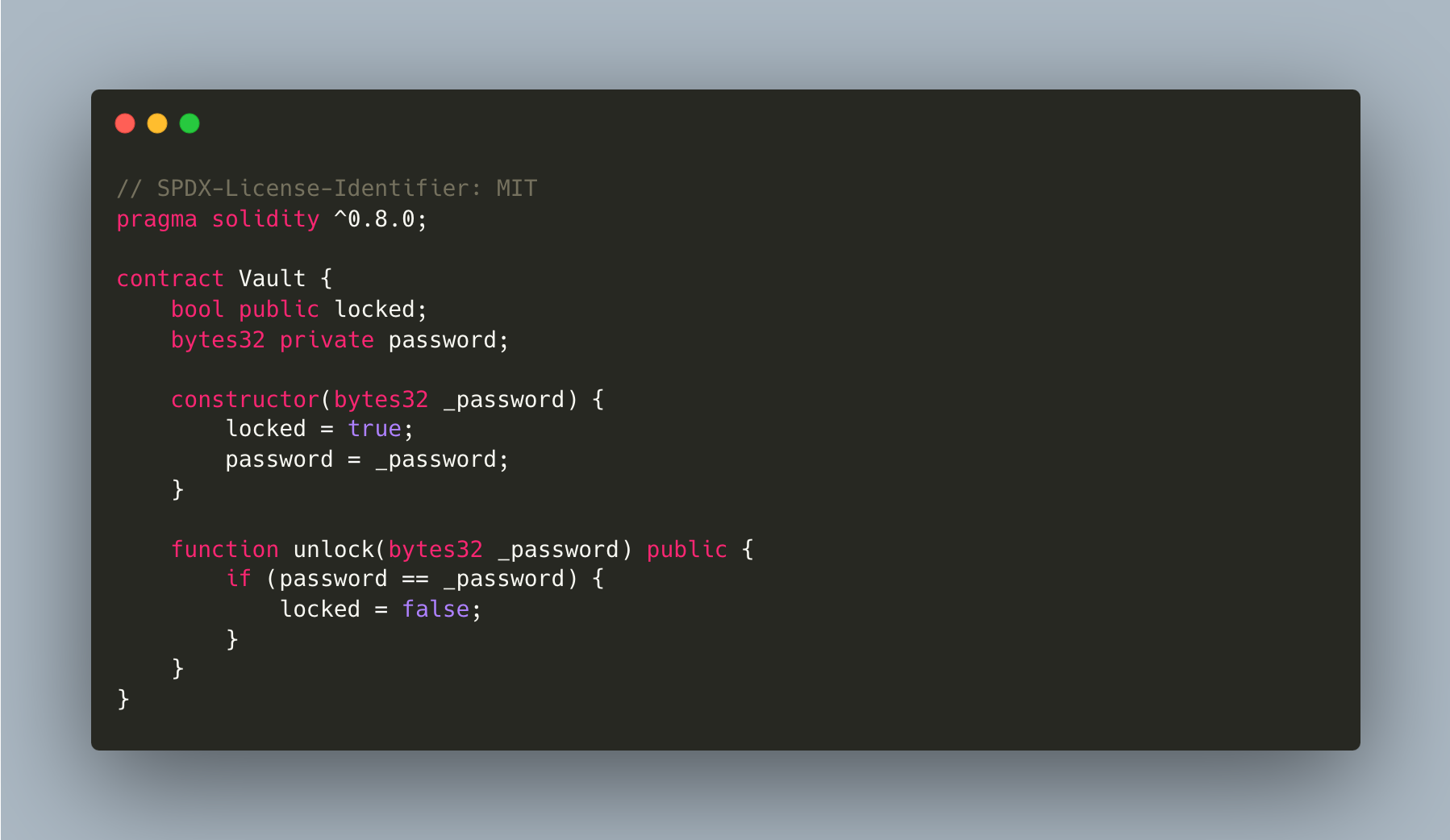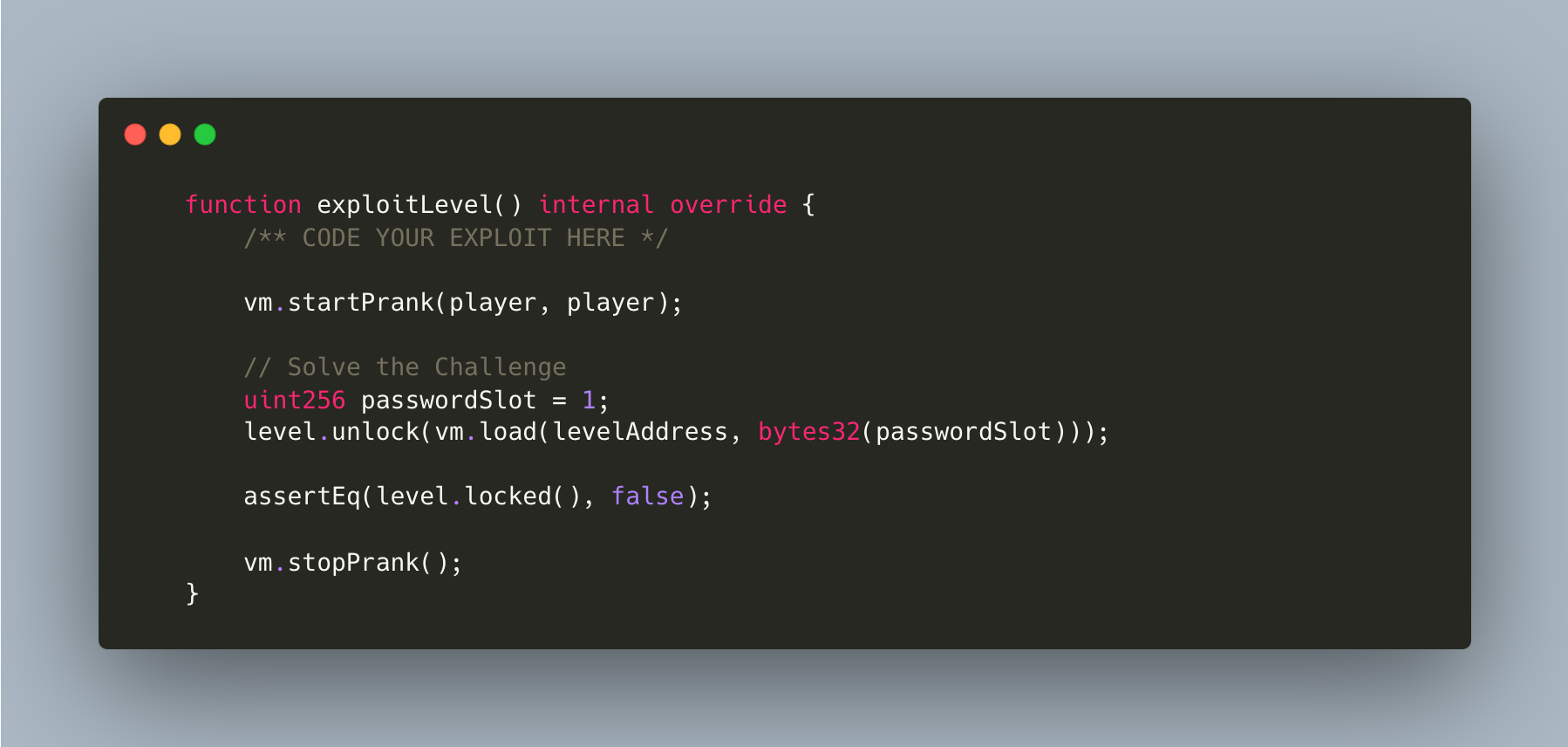Ethernaut: Vault

My take on CTFs
CTFs constitute a crucial part in the process of becoming a successful security researcher as they require from you an eye for details, a good understanding of solidity and great technical skills to perform the attack and capture the flag. The most talented security researchers are great at CTFs, at solving them of course and sometimes at designing them. CTFs will not turn you into a great web3 security researcher over night, but it will surely arm you with good enough technical skills to be able to write decent coded PoCs to have your finding validated and maybe get selected for report.
What is Ethernaut?
Ethernaut is a CTF(Capture The Flag) developed by the openzeppelin team that you most propbably already heard of. If you haven't, consider taking a look at this roadmap https://www.0xjarix.com/if-i-had-to-start-again/
This CTF gathers 31 challenges for the moment, this number keeps increasing so check their website every now and then: https://ethernaut.openzeppelin.com/
Maybe you'll design your challenge one day and send it to the openzeppelin team.
Also why you here?
Of all the kinds of articles I publish, CTF writeups are those I wish you read the least. I am a big advocate of giving everything the time it needs, if you cannot solve a challenge that you know for a contains an intentional bug in such a small codebase, do not expect to do really well in the contests. There are 2 reasons why someone can fail at solving a challenge, and when I say 'fail' I mean giving up and looking at the writeups, knowing damn well these CTFs are not time-bounded. So if you failed you either:
- aren't ready for this challenge yet and that is most probably due to the fact that you skipped some steps in the roadmap
- are lazy, you read the challenge, read the codebase, maybe not enough times, you had some assumptions maybe, you might have identified some entrypoints or some conditions to bypass or break, but you did not give it enough time, you did not allow yourself to succeed and that's a shame
Vault
Unlock the vault to pass the level!

Goal
locked = false
Reasoning
- If you're used to OOP, you would know that the only difference between public and private is the availability of the variable outside the class... In smart contracts, it's pretty much the same thing, a private variable cannot be accessed externally, like so: vault.password
- private is a big word, especially in blockchain where transparency prevails, remember all the state variables are available on-chain, as they live in the storage of the smart contracts, whether it be private or public, the only way to hide something is by hashing it. We can work this around through foundry cheatcodes that allow us to read our contract's storage at a certain slot

Nothing is private unless it is hashed, never forget to hash secrets such as password!

